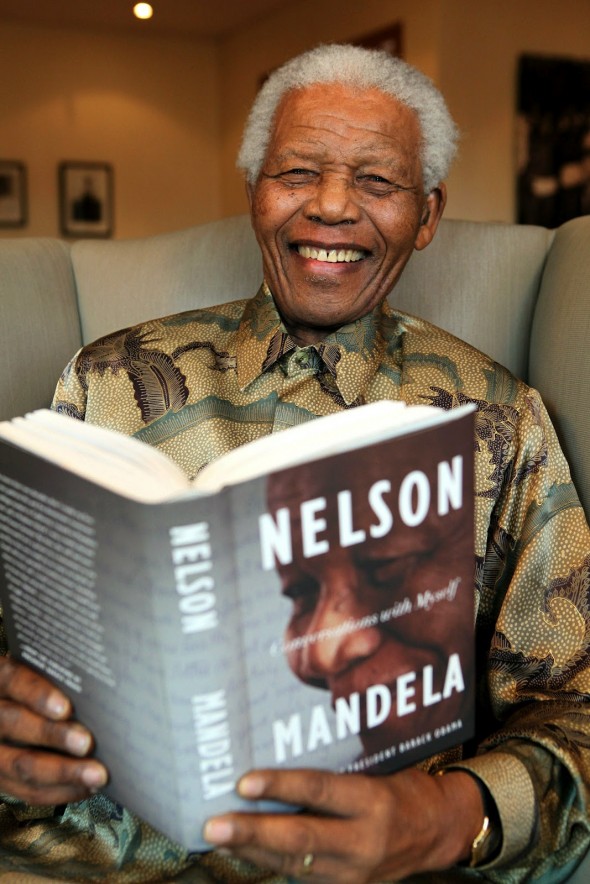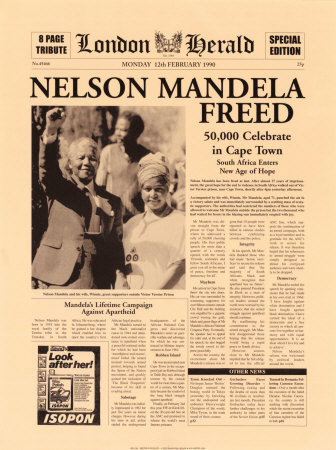Hina Ali (Twitter: @uzaam)
I first heard about Mr. Mandela when I was a little kid. My parents used to talk about him and they always showed so much reverence for the man. They would say that he was locked away for his entire life despite being an innocent man. I was too young to understand his story.
The second time I got to know him was when I read his autobiography – LONG WALK TO FREEDOM. Although I already read about his struggle and life the book helped me shape a nuanced view of him.

In this book Mr. Mandela tells you about his incredible and painful journey. He recollects stories about his transformation from a village boy to a freedom fighter, to a political prisoner condemned for life to the most revered ruler of South Africa.
I was not born with a hunger to be free. I was born free … It was only when I began to learn that my boyhood freedom was an illusion … that I began to hunger for it. (Pg 543)
Some of the stories about this life are fascinating. At one point he talks about his embarrassment at using cutlery and wearing boots.
It takes no time to realise that he thought long and hard while writing the book. He tries to explain his life and struggle as best as he can. I was shocked to read about the machinations and pervasiveness of apartheid.
“Apartheid was a new term but an old idea. It literally means “apartness” and it represented the codification in one oppressive system of all the laws and regulations that had kept Africans in an inferior position to whites for centuries. What had been more or less de facto was to become relentlessly de jure. The often haphazard segregation of the past three hundred years was to be consolidated into a monolithic system that was diabolical in its detail, inescapable in its reach, and overwhelming in its power.” (Pg 97)
“To be an African in South Africa means that one is politicized from the moment of one’s birth, whether one acknowledges it or not. An African child is born in an Africans Only hospital, taken home in an Africans Only bus, lives in an Africans Only area, and attends Africans Only schools, if he attends school at all.” (Pg 84)
The fact that he did not let his circumstances and enemy break his spirit and was not even bitter to his enemy makes him a true inspiration.
“Banning not only confines one physically, it imprisons one’s spirit … The insidious effect of bans was that at a certain point one began to think that the oppressor was not without but within” (Pg 126)
He kept his wit and kept negotiating and working with his opponents and even his enemies. When international pressure got too much for South Africa’s government, it was his openness in negotiations which forged the breakthrough.

“I have walked that long road to freedom. I have tried not to falter; I have made missteps along the way. But I have discovered the secret that after climbing a great hill, one only finds that there are many more hills to climb.”
I believe he wrote this book so people like me could know him in true sense even after he is gone. I must say I really enjoyed knowing Mr. Mandela and will be returning to this book in future.

Hina, I loved all the quotes you pulled from this book. I had even heard some of them before because Nelson Mandela speaks and writes beautifully and his quotes are very popular. You made me want to read this book so I could learn more about his past and about Apartheid. The last time I learned anything about that was six years ago (my first year of high school) and I think I could use some more information.
Thanks Sam! I think the book is a great read for anyone who wants to look beyond America and see how race and colour have changed shape of different countries. Because when we talk about black people America is the only country which comes to mind but actually there is a lot of other countries who have seen race as a fundamental issues in term of human rights.